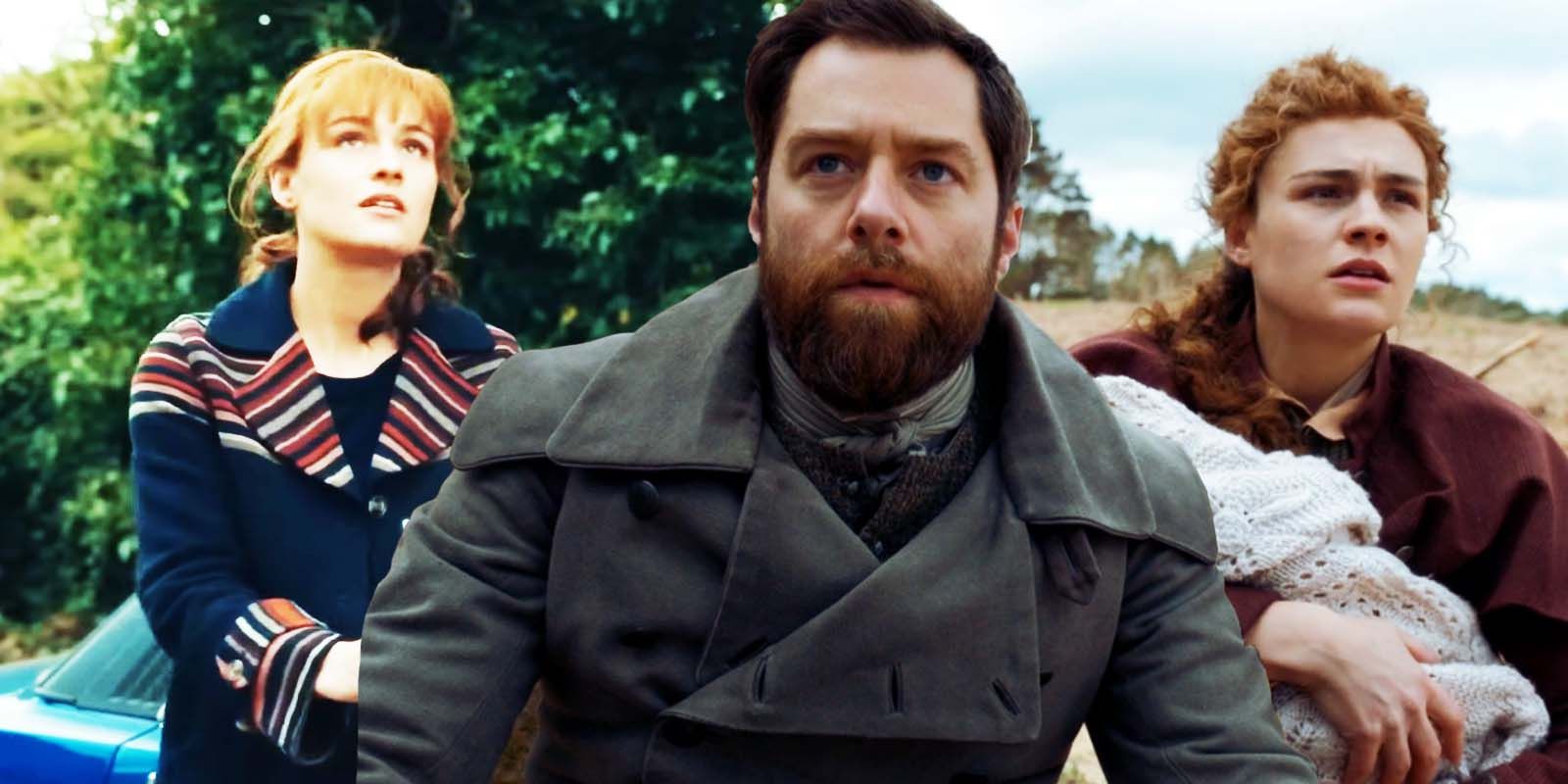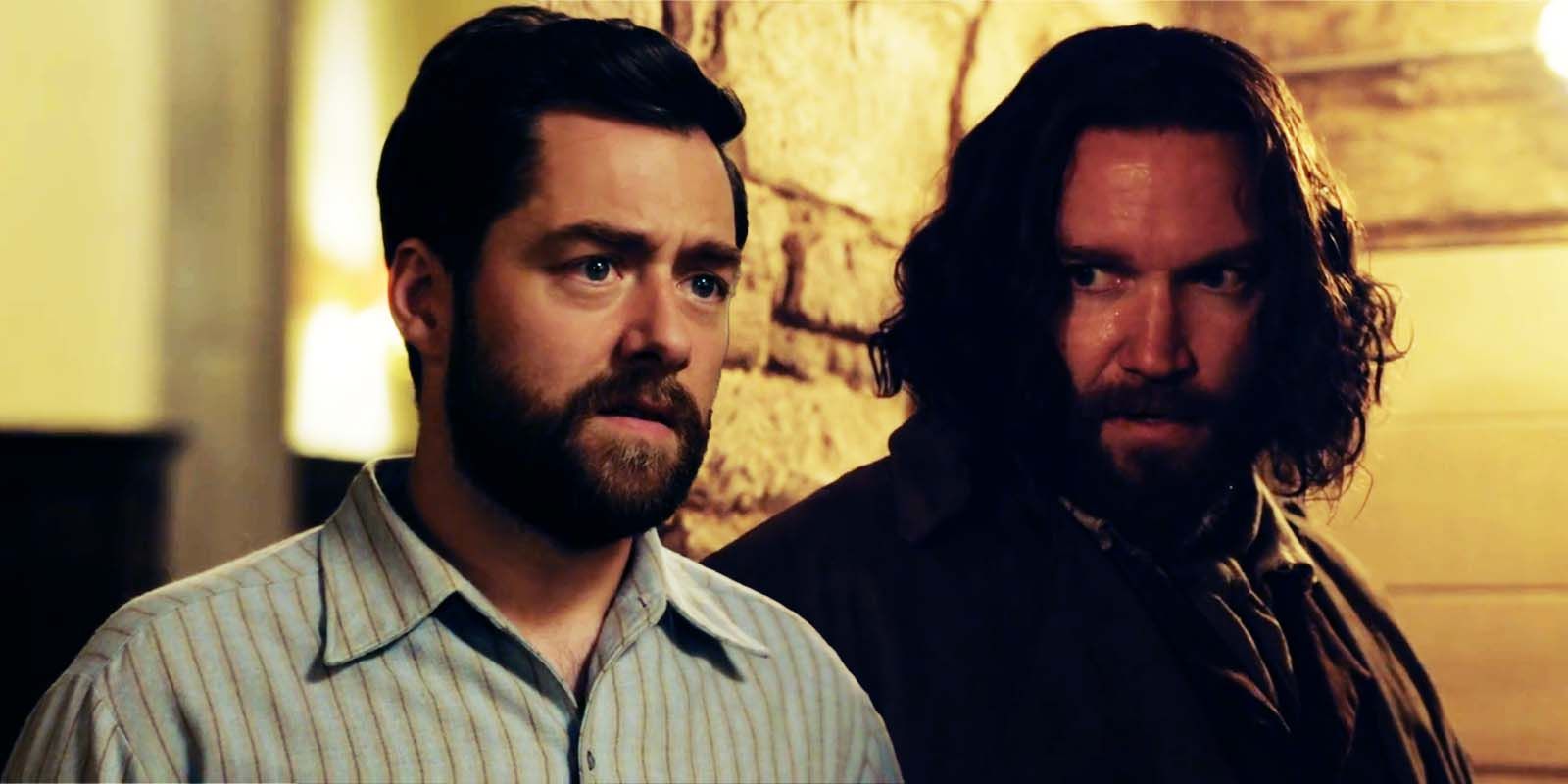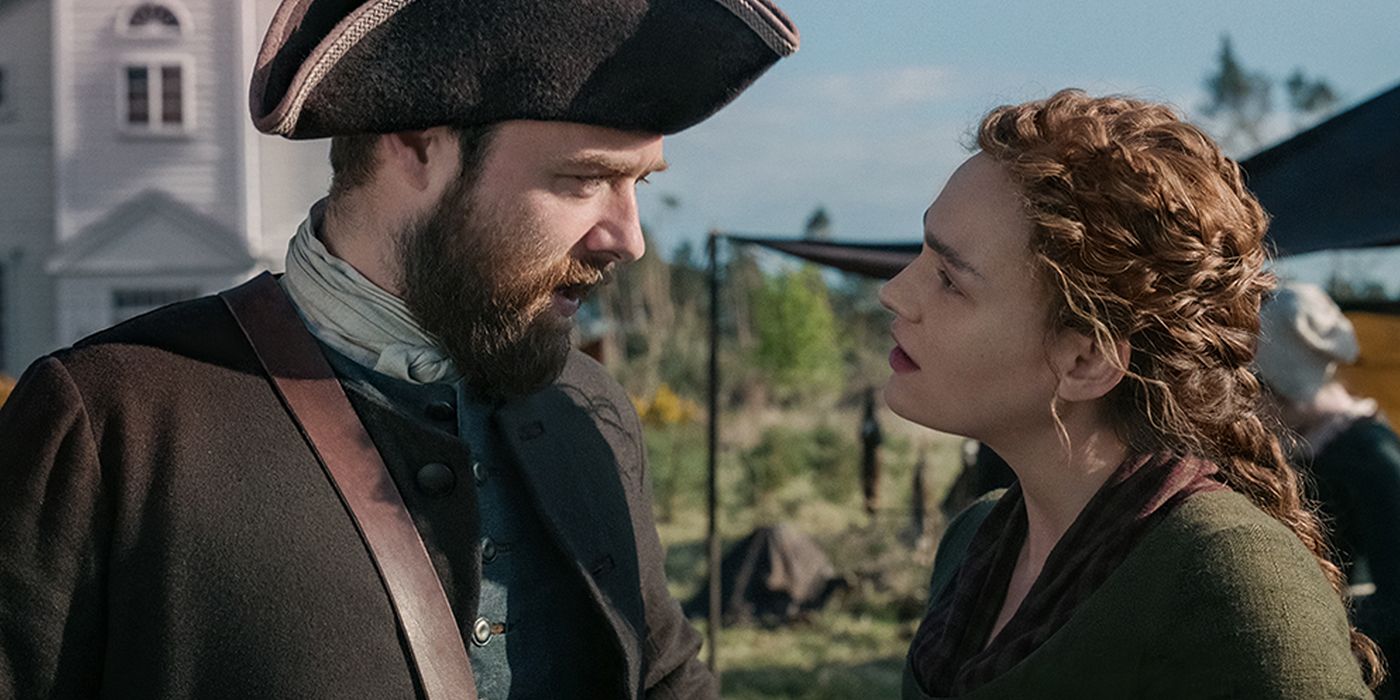
Notice! Spoilers for Outlander Season 7, Episode 9 ahead!
Roger pondered a troubling question in Outlander season 7, episode 9 — but his big worry made absolutely no sense. The mid-season premiere saw Roger once again cross the stones, but his time travel adventures were different this time. Instead of going back to the 1770s (Jamie and Claire's present), he landed around 1739. This makes the search for his son Jemmy that much more challenging, as Roger has to navigate a time he's never been to before. Still, this Outlander character seems to be making everything more complicated than it needs to be.
Roger is not alone in searching for Jemmy in Outlander season 7, episode 9. William MacKenzie (aka Buck), Roger's ancestor, joined him. Buck is originally from the 18th century, but accidentally traveled 200 years into the future when he stopped to rest at the stones of Craigh na Dun in 1782. Buck became close to Roger's family during his time with them, which is why he offered to help Search for Jemmy across space and time. Unfortunately, Buck fell ill soon after his arrival in 1739leading Roger to worry about what would happen if his ancestor died.
Roger wonders if he and Jemmy would still exist if Buck died in Outlander season 7
Roger still doesn't seem to understand time travel
Throughout Roger's adventures in Outlander In Season 7, Episode 9, his internal dialogue was heard as a voiceover, letting the audience in on his every thought. When Buck complained of chest pain, Roger became anxious and wondered what would happen if his ancestor died...Would he and Jemmy suddenly cease to exist? It's understandable that with everything that's going on, Roger might not be thinking clearly, but that really didn't make any sense.
Buck and Roger's three-times great-grandfather Jeremiah's son is born before his father jumped through time. So nothing that happened to Buck in 1739 – a time before this man was even born – would change that. There was never any concern about Outlander that Brianna and Jemmy would suddenly cease to exist if Jamie died, so why would it be any different for Buck? What's more, the year of Buck's death has already been recorded in history since he was presumed dead when he walked through the rocks in 1782. Roger is a smart guy, but his thought process here doesn't add up.
Outlander follows a paradoxical model of time travel
This is not back to the future
Roger's concern would make more sense if he had gone back in time and met a younger version of Buck. If the man fell ill in the past, Roger might feel some anxiety that his ancestor's death would change the timeline and he himself would cease to exist. However, even so, this is not how things have worked so far. Outlander. The fantasy series uses a paradoxical model of time travel, which reinforces the idea that people who travel back in time cannot change anything. An example of this is Brianna going back in time to stop the fire at Fraser's Ridge, only to discover that she was the one who caused it.
An example of this is Brianna going back in time to stop the fire at Fraser's Ridge, only to discover that she was the one who caused it.
Of course, given the fact that Roger has just lost his son and is traveling through a new (for him) portion of time, he can be forgiven for his irrational thinking. It's also fair that he's upset at the thought of Buck's death, as he reluctantly approached the man. Still, the time travel is confusing enough without Roger adding more needlessly complicated anxieties into the mix. Outlander 7th season.

